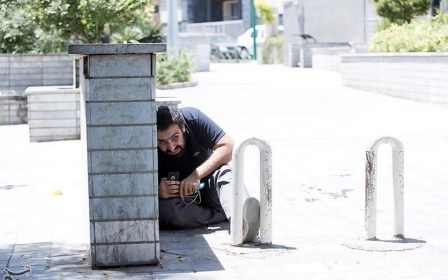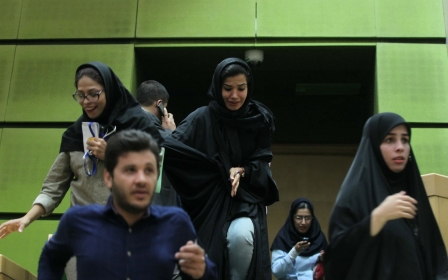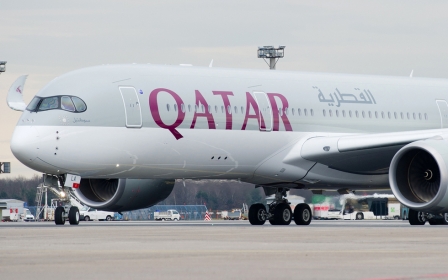Tehran accuses Saudi Arabia of backing terrorism in Iran
Iran's foreign minister on Tuesday accused Saudi Arabia of supporting terrorists inside Iran, days after the Islamic State group claimed attacks in Tehran.
"We have intelligence that Saudi Arabia is actively engaged in promoting terrorist groups on the eastern side of Iran, in Baluchistan," Mohammad Javad Zarif said on the sidelines of a conference on peace mediation in Oslo.
"On the western side, the same type of activity is being undertaken, again abusing the diplomatic hospitality of our other neighbour," he said, without elaborating.
Relations between the two neighbours are at their most tense in years. Last week Riyadh, along with other Arab governments, severed ties with Qatar, citing its support of Iran as one of the main reasons for the move.
Two days later, the suicide bombings and shootings in Tehran killed 17 people.
Last week, the Revolutionary Guards linked the "brutal attack" to Donald Trump's visit last month to Riyadh, where the US president pointed the finger at Iran for fuelling "the fires of sectarian conflict and terror".
"This terrorist act took place a week after a joint meeting between the US president and head of a reactionary regional country [Saudi Arabia] which has been a constant supporter of terrorism," the statement said.
"The fact IS claimed responsibility proves that they [Saudi Arabia] were involved in the brutal attack."
Adel al-Jubeir, Saudi Arabia's foreign minister, denied the accusation. "We condemn terrorist attacks anywhere they occur and we condemn the killing of the innocent anywhere it occurs," he said.
Zarif also called on the establishment of a regional forum to resolve differences, made more necessary by the ongoing tensions between Qatar on the one hand and Saudi Arabia, Egypt, the United Arab Emirates and Bahrain on the other.
"It is absolutely imperative... to establish a permanent mechanism for consultation, conversation and conflict resolution in our region, using some variation of the Helsinki approach," said the foreign minister, in reference to the 1975 Helsinki Accords.
"I think it worked at the height of the Cold War here in Europe, it should work (for the Middle East too)."
Asked about US President Donald Trump's descriptions of Iran, which he described in a recent tweet as a state sponsoring terrorism, Zarif referred to the fact that most of the 11 September attackers were Saudi nationals, rather than Iranians.
"President Trump is trying to change the nationality post-mortem of 15 of the 19 suicide bombers, or of every other suicide bomber that attacked US soil or any Western country over the past 20 years," he said.
"They did not come from Iran. None. Why is he trying to change history? We are not intimidated by these moves."
Baluchistan is home to a Sunni population who form a minority in majority Shia Iran.
Iran repeated accusations that Saudi Arabia funds Islamic militants including Islamic State.
Iran and Saudi Arabia accuse each other of subverting regional security and support opposite sides in conflicts including those in Syria, Yemen and Iraq.
Saudi Arabia, Bahrain and the UAE are blockading Qatar and have closed off airspace to Qatar Airways, a decision which Saudi Arabia insists has been taken to protect its citizens from "threats".
Iran also accuses the United States of backing Islamist militancy in the region.
Middle East Eye propose une couverture et une analyse indépendantes et incomparables du Moyen-Orient, de l’Afrique du Nord et d’autres régions du monde. Pour en savoir plus sur la reprise de ce contenu et les frais qui s’appliquent, veuillez remplir ce formulaire [en anglais]. Pour en savoir plus sur MEE, cliquez ici [en anglais].




